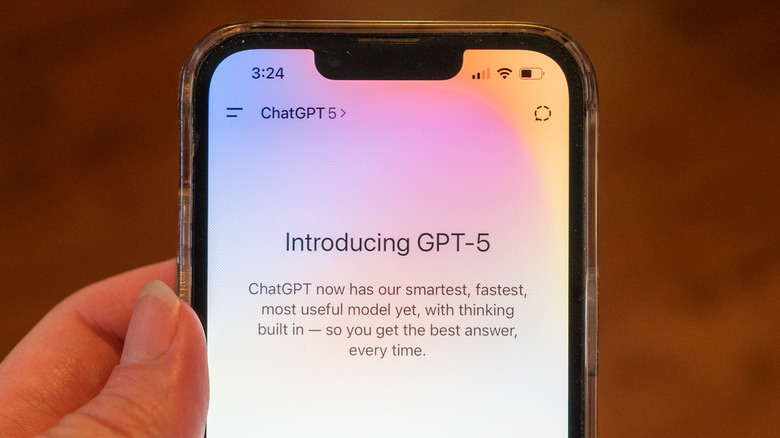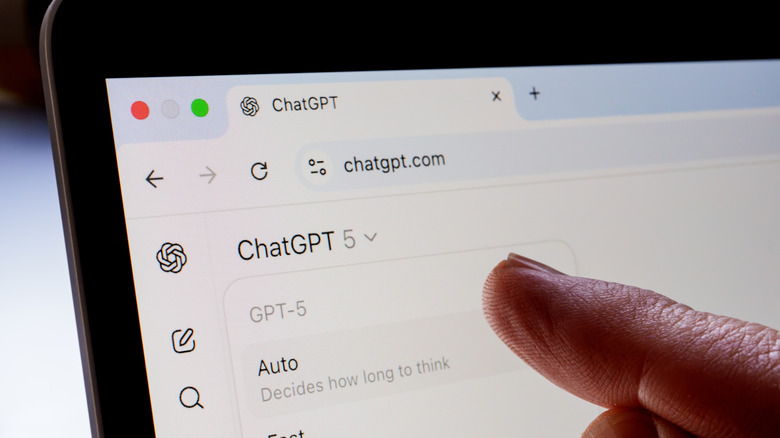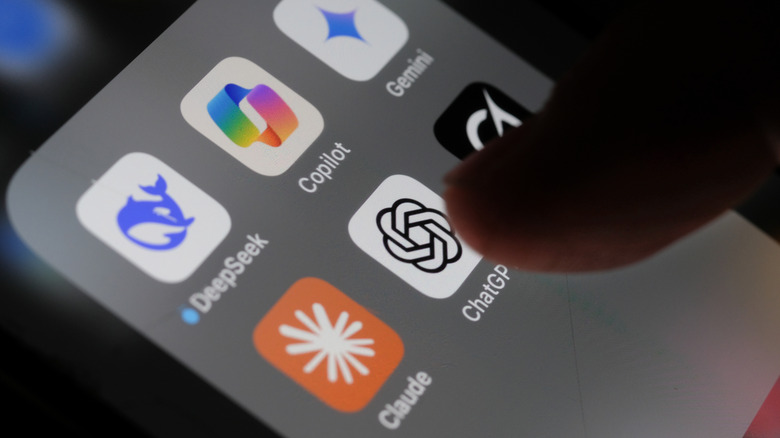ChatGPT Leak Hints User-To-User DMs Are Coming Soon, But Will Chats Be Encrypted?
One of the most surprising things coming out of OpenAI's DevDay event last week was the transformation of ChatGPT into a platform that can run apps in chats. It's a step closer to ChatGPT becoming an operating system, the kind of evolution OpenAI likely needs for the first ChatGPT hardware device, which might be launched in late 2026 at the earliest. Add the previously announced support for shopping in ChatGPT, and ChatGPT starts looking like an "everything app" with AI at the core. Some may think, a ChatGPT everything app or operating system would also need a key piece of software other competitors have, a chat app that supports user-to-user chats, or direct messages (DM).
A discovery in early October showed that OpenAI was working on DM support. Found by Tibor Blaho, who often shares details about unreleased AI products online, the DM functionality appeared in a beta version of the ChatGPT app for Android. Codenamed "Calpico" and "Calpico Rooms," the feature might be similar to the DM functionality OpenAI already created for the Sora app for iPhone.
"Direct Messages" has now been added to the ChatGPT Android app (version 1.2025.273 beta) – codename "Calpico" / "Calpico Rooms"
Direct messaging was first introduced yesterday in the new Sora 2 iOS app, and now code references in the ChatGPT Android app show it includes direct... pic.twitter.com/e2kzWyu4N9
— Tibor Blaho (@btibor91) October 1, 2025
On Saturday, Blaho shared additional details about ChatGPT DMs obtained from a different beta version of the ChatGPT app for Android. This time, he shared a screenshot of the ChatGPT interface featuring an icon for direct messaging (above). These developments indicate that a user-to-user chat system is coming to ChatGPT in the near future. But we don't need an announcement from OpenAI to figure out what the key feature of ChatGPT DMs should be, and why it might be a problem for OpenAI: End-to-end encryption (E2EE) that's as secure as iMessage, WhatsApp, and Signal.
What ChatGPT DMs can do
Meta has baked Meta AI support into all its apps, including WhatsApp and Facebook Messenger. It makes sense for OpenAI to do something similar; to build a DM feature inside a chatbot app. If you've ever shared a ChatGPT chat with another person, you probably figured out why having DMs inside ChatGPT is a good idea. It might be the best way to share chats with others, without worrying about what happens with the shared links.
Blaho's findings do not address E2EE support for ChatGPT DMs, but he mentioned privacy features in early October when he first found references to Calpico. He said at the time that users can chat with ChatGPT in group chats, but their personal memories will not be accessible in DMs to ChatGPT or anyone else. The app will also send notifications to users for new messages and actions like someone joining or leaving a chat room.
h/t @pablco (1:25) https://t.co/YED0tzKjYh pic.twitter.com/mO9GPFk9dt
— Tibor Blaho (@btibor91) October 11, 2025
Over the weekend, Blaho offered additional details about the DM functionality. He said that users will be able to "ChatGPT together" or "brainstorm ideas, plan together, ask, search, create images, and chat together." The chat feature will also have an auto-response option. Users will be able to rename their assistants and update their personality. They'll also be able to invite others to their group chats and block others.
Why encryption is a key feature
It'll be interesting to see how OpenAI frames user privacy for the DM feature in ChatGPT. On the one hand, Sam Altman has often mentioned the importance of ensuring chats with AI are private, suggesting "AI privilege" should protect these chats similar to doctor-patient or attorney-client privilege. Also, the future ChatGPT device is expected to offer personal assistant features, which may involve access to sensitive user data. Strong privacy will be paramount.
we have been thinking recently about the need for something like "AI privilege"; this really accelerates the need to have the conversation.
imo talking to an AI should be like talking to a lawyer or a doctor.
i hope society will figure this out soon.
— Sam Altman (@sama) June 6, 2025
On the other hand, OpenAI uses ChatGPT chat data to train its models if users accept it. Also, OpenAI uses autonomous systems to determine if ChatGPT users violate usage policies and monitor for self-harm ideation. Human teams can then be involved in monitoring these chats. Separately, OpenAI was ordered earlier this year to prevent the permanent deletion of deleted ChatGPT chats in a case The New York Times brought against the company. A few days ago, the court changed parts of the order so OpenAI can delete some of those deleted chats. Finally, earlier this summer, users found shared ChatGPT conversations were indexed in Google Search.
All these separate developments have something in common: User privacy isn't fully protected. It'll be challenging for OpenAI to offer E2EE support to ChatGPT DM chats, assuming the company wants to do it from the start. But failure to support E2EE would result in a less secure experience compared to other chat apps. If OpenAI wants ChatGPT to become an operating system, it'll need to secure its key features with strong encryption, including any first-party DM apps it releases.


